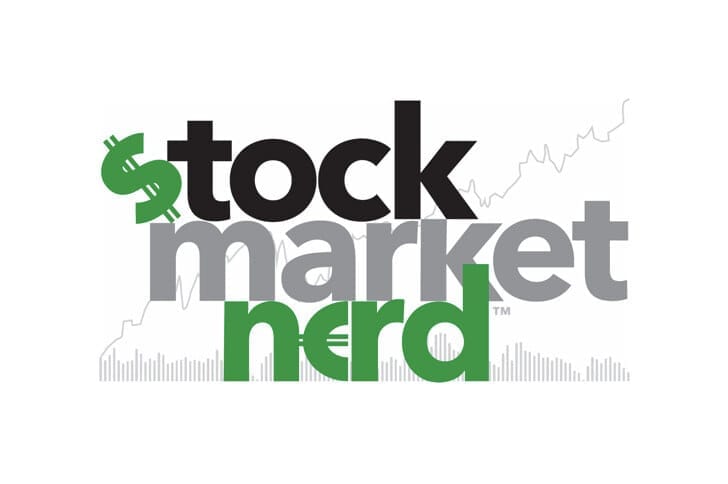
This piece is powered by my friends at Savvy Trader:
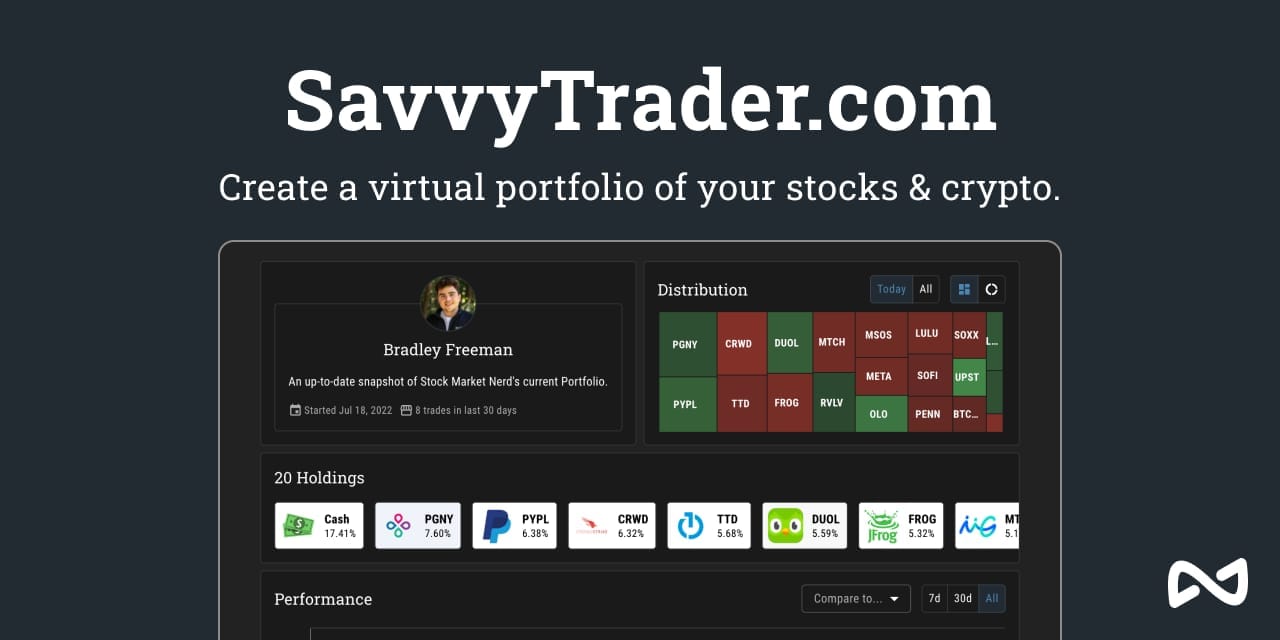
1. SoFi Technologies (SOFI) -- New Launch
Galileo and Technisys together launched Cyberbank Digital as a managed service. Intuitively, this builds on the Technisys Cyberbank multi-core banking offering. As a reminder, Cyberbank provides a slick, unified UI/UX as well as tech to help accelerate a client’s product launches and operational efficiencies through tools like conversational AI. It can even tweak and tailor the customer experience on a user by user basis to ensure content is most relevant for each person.
SoFi is pairing Technisys’s vast expertise in building a granular, approachable banking app interface with Galileo’s payment processing engine to provide somewhat unmatched breadth in the world of fintech software. It has seamless navigability + deep banking functionality wrapped into 1.
Furthermore, adding a fully managed option will lower the barriers to purchasing and on-boarding for clients by placing the entire operational burden on SoFi. That will allow for more rapid digital evolution by making that transition more seamless.
I’ve been asked: “How can SoFi have access to this cutting edge technology, yet also have an underwhelming consumer app?” That’s a fair question. Priority one for Galileo and Technisys -- considering how much SoFi invested in the two firms -- was to solidify the health of each company as a standalone, independent entity. This news marks a move to stage two: Combining the utility of each software platform. After that’s wrapped up is when SoFi will use all of these tools to improve its own consumer facing app. It’s a process.
2. CrowdStrike (CRWD) -- EY & an Accolade
a) EY
CrowdStrike and global consulting giant Ernst & Young (EY) announced a new cloud security and observability alliance this past week. Over the last few years, CrowdStrike has taken to heart criticism that it isn’t a good enough partner or team player with other parts of its ecosystem. Well, since then it has signed lucrative selling deals with countless Managed Security Service Providers (MSSPs), cloud titans like AWS, bellwethers like Deloitte, and now it is extending its established relationship with EY to more of CrowdStrike’s product categories.
That’s why partner revenue is growing at a triple digit clip -- and relationships like this will work to fuel the fire. EY will now focus more enthusiastically on recommending CrowdStrike’s cloud & observability tech to its clients (some are listed below).
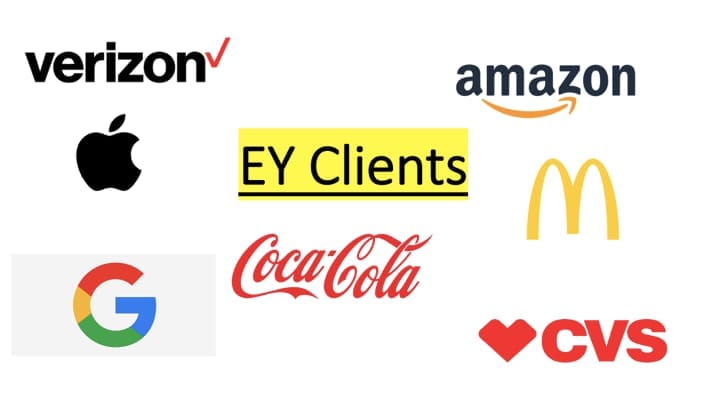
b) Accolade
SE Labs independently published an Enterprise Security Ransomware Test painting CrowdStrike in a very positive light. Not only did CrowdStrike achieve 100% protection, but did so with ZERO false positives. Why is this so important? Security resources are scarce. Inundating already busy teams with false positives diminishes productivity within mission-critical tasks while adding unnecessary cost
“CrowdStrike Falcon performed exceptionally well, providing complete detection and protection coverage against all direct ransomware attacks. It provided thorough insight into the full network breaches that concluded with ransomware deployments… An excellent result in an extremely challenging test.” -- SE Labs CEO Simon Edwards
Savvy Trader is the only place where readers can view my current, complete holdings. It allows me to seamlessly re-create my portfolio, alert subscribers of transactions with real-time SMS and email notifications, include context-rich comments explaining why each transaction took place AND track my performance vs. benchmarks. Simply put: It elevates my transparency in a way that’s wildly convenient for me and you. What’s not to like?
Interested in building your own portfolio? You can do so for free here. Creators can charge a fee for subscriber access or offer it for free like I do. This is objectively a value-creating product, and I’m sure you’ll agree.
There’s a reason why my up-to-date portfolio is only visible through this link.
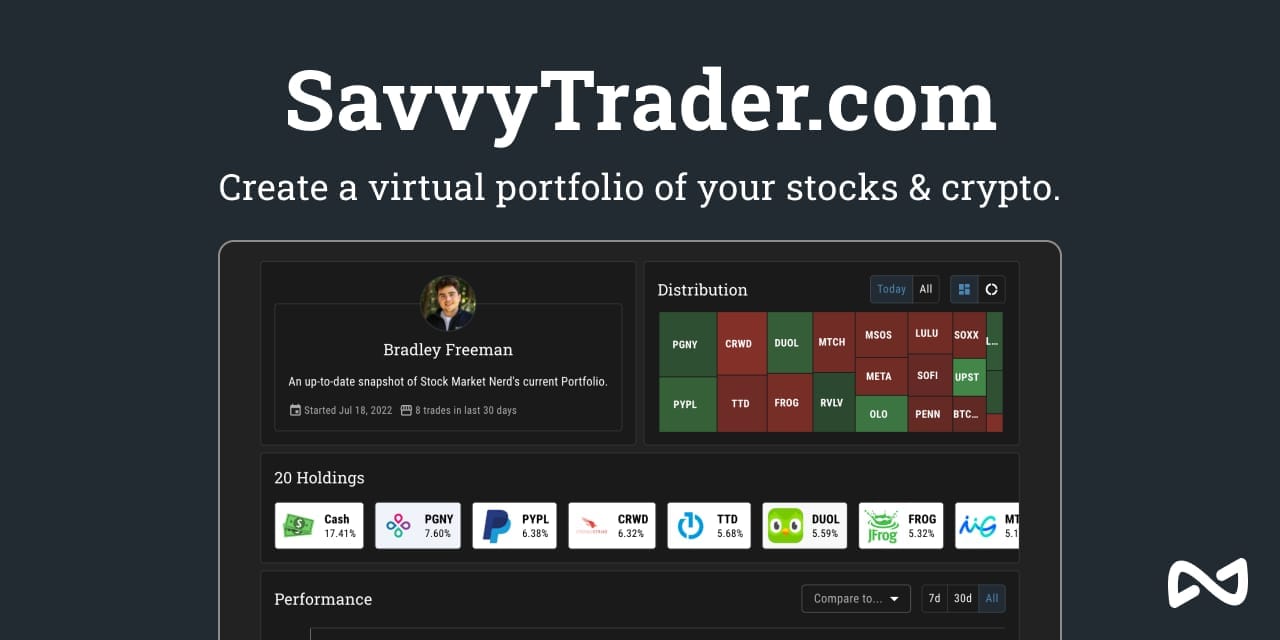
3. Upstart (UPST) -- New Partners
a) Honda
Add Honda to the list of major auto manufacturers embracing Upstart Auto Retail. This week, Upstart secured a Honda Digital Solutions Partner certification. This makes the software is eligible for deployment in all 1,000+ Honda dealers across the U.S.
Whether it’s Kia, Lexus, Toyota etc. iconic car companies are flocking to this platform for the automation-fostered input cost reduction, better customer experience and superior underwriting (subjective at this point). As the fastest growing auto retail software in the United States, this will provide yet another lever of growth for the already thriving segment. Macro will not suck forever. When it doesn’t, I expect Upstart to “magically” morph back into the wildly profitable hyper grower we got so used to -- this time with a more durable lineup of funding partners to combat future downturns. That will not happen tomorrow, next week or next month. But I do believe there will be clear signs of it turning the corner fundamentally sometime next year. We shall see if I’m right or wrong.
“What I love about Upstart Auto Retail is that it combines high-quality digital retail tools with an in-store app to streamline the sales process -- making it a game changer. It’s a UX tool, retention tool, & profit generator wrapped up into one.” -- Buckeye Honda GM Scott Thomas
b) Commonwealth Credit Union
Upstart landed Commonwealth Credit Union as its latest referral network partner. Commonwealth has over $1 billion in assets under management (AUM) and operates predominately in Kentucky. As a reminder, here are the core benefits of adding new partners to the network:
- Bank and credit union partners are less sensitive to macroeconomic cycles than fast money hedge funds & other capital market participants. This is a key piece of Upstart building a more durable & smoothly growing book of business cross-cycle.
- Upstart’s platform today is severely funding constrained. It needs all of the funding supply it can get -- and this helps.
Step 1 is signing on more partners to join the network. Step 2 is providing them with outperforming returns. And Step 3 is seeing those partners originate more and more volume once proof of concept has been established. Its consistently outperforming loan pools for partners through all of the turmoil should mean it can continue getting to step 3 (like the Atlantic case study last week indicates). That ability needs to be strong and consistent.
4. PayPal Holdings (PYPL) -- Amazon, Passkeys & More
a) Amazon
After over a year of building and planning, Venmo is launching its checkout product on Amazon’s marketplace. Starting this week, the option is available for a small cohort of consumers and will roll-out to all of Amazon by Black Friday. Amazon has been historically protective of its checkout flow in terms of preferring to support its own option at every turn vs. opening it up to the field. That makes this move even more interesting as it marks Amazon’s awareness of just how much incremental value Venmo’s nearly 90 million U.S. consumers can provide.
Venmo is actively transitioning its operations from peer-to-peer (P2P) revenue reliance to a reliance on higher margin (and more sustainable) commerce. Considering how quickly the Federal Reserve’s own P2P products are expected to come, this is vital for the longevity of the platform. Evidence of the transition’s success is already clear with rapidly growing commerce volume and Venmo business profiles -- which are directly bolstering the product’s unit economics. That’s why Venmo recently inflected to positive operating profit.
There is no better partner to add to this commerce momentum than Amazon with its dominant stranglehold on American e-commerce. Institutions like Morgan Stanley also think this will serve as a domino for other large merchants to follow suit… that’s already beginning to play out with the Venmo checkout offering briskly growing its merchant adoption to 4% in the last few quarters.
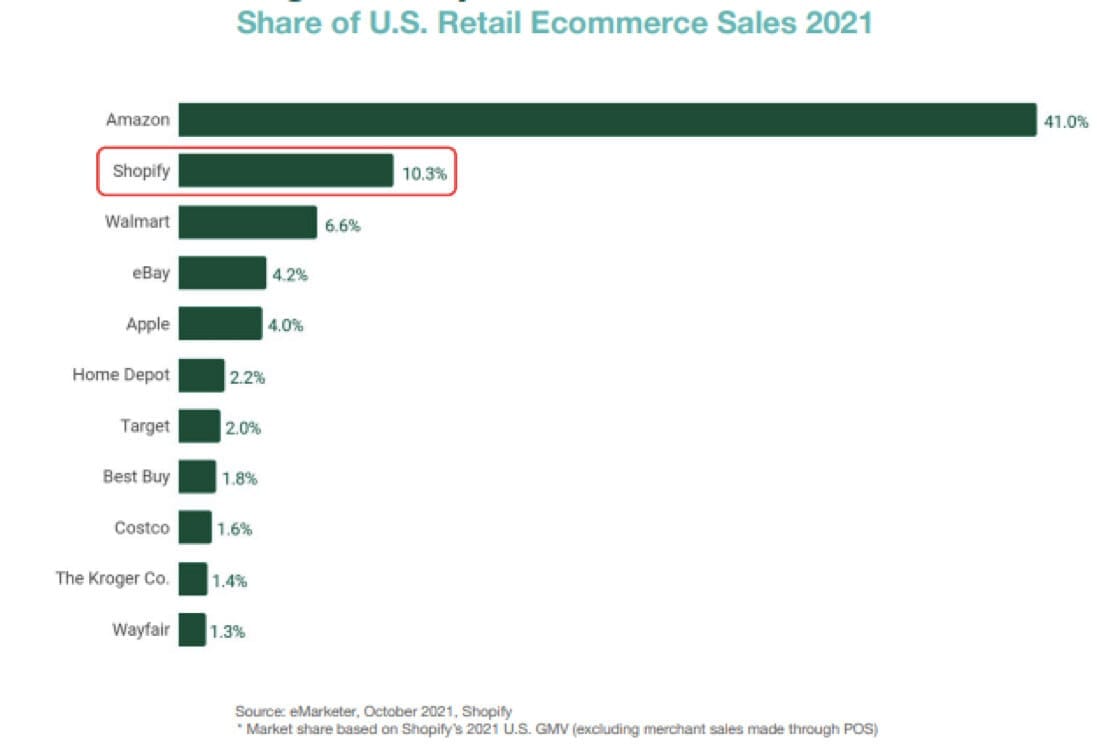
This should be exciting.
b) Misinformation Policy
The policy allowing PayPal to claw back $2,500 in merchant revenue for promoting misinformation has been reinstated. I know many will disagree with me on this (and that’s ok!), but this is the correct move in my view. PayPal is financially liable for any illegal activity conducted by a merchant on its platform. Affording itself more flexibility in recovering losses associated with that law breaking limits the risk of dealing with the inevitable bad actor in a sea of 30+ million merchants. If it abuses this policy, the public will likely hold it accountable by moving on to the plethora of other financial service substitutes. That’s the beauty of Capitalism and competitive markets.
